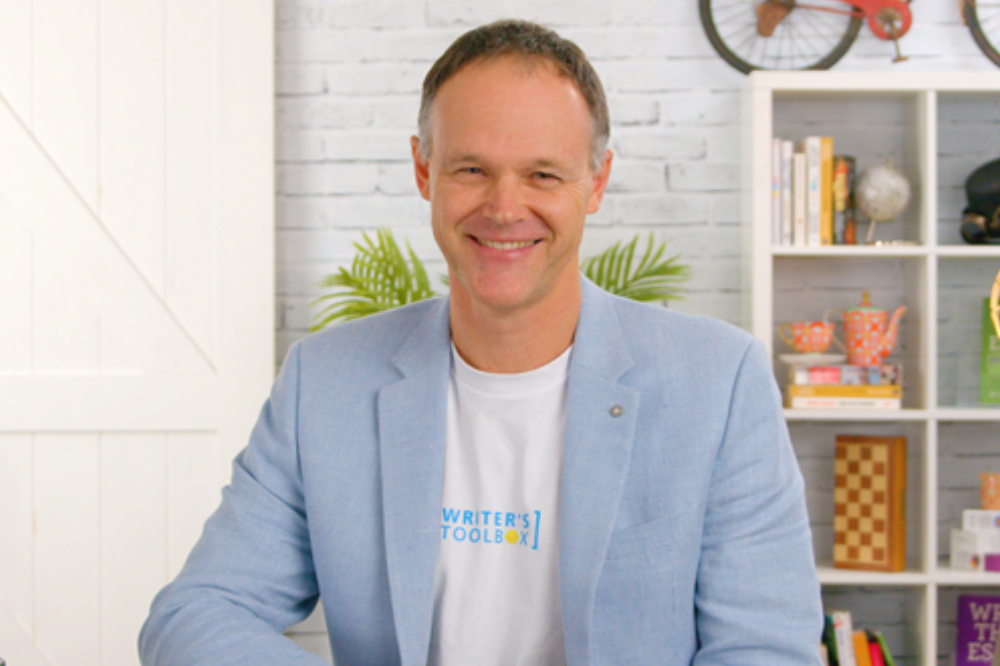
Over recent years, there has been a notable decline in students' writing skills. This trend has been particularly evident in NAPLAN (National Assessment Program - Literacy and Numeracy) results, which show a consistent drop in writing proficiency across various year levels.
Worrying, as many as 60% of Australian teachers report feeling unprepared or ill-equipped to teach writing, suggesting methods are not delivering.
According to Dr Ian Hunter, who has worked as a consultant to government and multinationals in the areas of innovation, creativity, economic development, and education, an explicit, whole-school system is needed to teach writing at every year level from Prep to 12.
Drawing on experiences gained over a 20-year academic career, including positions at four universities, Dr Hunter founded Writer’s Toolbox in 2011. The educational writing program, powered by patented AI, was designed to help students master writing, but without doing the work for them.
In 2023, the program was recognised at New Zealand’s prestigious Hi-Tech Awards, winning ‘Most Innovative Hi-Tech Creative Technology Solution’ for its patented AI-enabled technology that’s improving student writing skills around the world.
“Chat GPT, Gemini, and other generative AI models have excited the world about the possibilities and challenges of AI. These AI engines were built to give accurate, detailed answers, and they do this well. Our aim at Toolbox was different,” Dr Hunter told The Educator.
“Our aim was to build the world’s first Educational AI. Not AI to give you answers—which breaks academic integrity and the child learns nothing—but AI to actually teach you. And to teach you how to write, whatever your age level or ability level, and whatever style of writing or subject you are working in. Because children don’t write like adults write.”
Dr Hunter says so far, it’s been “a decade-long R&D project”.
“We’ve won some international awards. But more importantly, we proved Writer’s Toolbox can lift student writing outcomes and deliver the other critical components surrounding writing: improved student confidence, self-belief, self-efficacy, and engendering joy in writing.”
A recipe for student confidence and teacher empowerment
When it comes to AI, Dr Hunter acknowledges that it’s easy to get caught up in the technology race, but he points out that technology isn’t the goal.
“Education is the goal. And that means a student who doesn’t just know something, but understands a concept deeply because you have met them where they are at—in their teachable moment,” he said.
“As a result, their skill lifts, agency increases, and you see greater self-belief. From a design perspective, you don’t achieve this by chance.”
Dr Hunter said the team at Writer’s Toolbox have spent a decade embedding these moments into the program’s DNA.
“Everything from the discovery learning opportunities to the intuitive design, to the personalized AI interactions, and we’re seeing the impact,” he said.
Last month, the company’s camera teams visited classrooms in Brisbane Catholic Education, where staff have been running a Toolbox pilot programme with eight schools. On camera, dozens of students—of all ages—commented not only on their improved grades, but how happy they now were about writing. One thirteen-year-old boy said: “Writing’s not my best thing. But when my teacher says we’re writing on Writer’s Toolbox, I go all happy.”
Dr Hunter said this student now has an authentic excitement about the writing process, has experienced an emotional re-direction in his self-concept as a writer, and is seeing his own improvement.
Another student, aged seventeen, said she loved the feedback [on Toolbox], because rather than telling her the answers, it “gives you the sense to figure it out yourself”.
“To make educational software work, you have to honour where the individual student is at. When you achieve this, change follows,” Dr Hunter said.
‘Teachers are having deeper learning conversations with students’
The company’s longitudinal study, titled ‘Raising Australian Writing Outcomes: A Way Forward’ tracked 71 schools and 78,000 students using Writer’s Toolbox across a four-year period and compared their progress to that of the State of Queensland.
The average lift in writing improvement across all year levels using Toolbox—3, 5, 7, and 9—was between two and ten times the state of Queensland in the same period.
Dr Hunter said the study surfaced many insights, but two stand out.
“Firstly, this sort of result tells us we can fix the writing problem. Australian students can write—we just need to teach them in ways they get it. Secondly, Educational AI can reduce teacher workload. And we know teacher workload is a pressing issue,” he said.
Dr Hunter said teachers reported that as Toolbox helped their students write better, they received higher quality first drafts and marking time was halved.
“Indeed, one school measured a saving of 650 teacher hours in a single term using Writer’s Toolbox,” he said. “And no longer stuck in a tangle of surface-level writing problems, teachers were having deeper learning conversations with their students, which is where education should be all along.”


